Fermented foods might sound like something you’d find forgotten in the back of your fridge… but trust me, they’re gut gold. These sour, funky, fizzy creations have been part of human diets for centuries, quietly working their magic on digestion, immunity, and overall health.
Whether it’s a tangy sip of kefir or a spicy forkful of kimchi, fermented foods are basically your gut’s favorite party guests.
But hold up—not all fermented foods are created equal. Some are total gut heroes, packed with live cultures and digestive benefits. Others? More like posers in probiotic clothing.
So before you grab that kombucha or pile on the sauerkraut, let’s break down which fermented foods are truly friend or foe to your digestive system. Because your gut deserves better than a bacterial betrayal.
1. Yogurt (with live cultures)
Yogurt is packed with probiotics like Lactobacillus and Bifidobacterium, which help restore and maintain a healthy balance of gut bacteria. Choose varieties labeled with “live and active cultures.”
Not all yogurts are created equal; some are filled with sugar and artificial flavors. Opt for plain, full-fat versions when aiming for gut health.
Yogurt’s creamy texture isn’t just comforting; it’s a vehicle for billions of beneficial microbes. You can dress it up with fruits and nuts or enjoy it plain. Either way, your gut will thank you for this probiotic powerhouse. It’s a delicious way to start the day.
2. Kefir
Think of kefir as yogurt’s tangier, more probiotic-rich cousin. It’s a fermented milk drink loaded with up to 30 strains of beneficial bacteria and yeast—great for improving digestion and lactose tolerance.
Kefir’s effervescent nature makes it an appealing choice for those looking to diversify their gut flora. Its tart and refreshing taste is a treat for the palate. Whether you drink it straight or blend it into smoothies, kefir brings a probiotic punch.
Incorporating kefir into your diet can be a delightful way to enhance your digestive health and explore new flavors.
3. Sauerkraut
This fermented cabbage dish is rich in fiber, vitamin C, and probiotics—just make sure you’re getting the raw, unpasteurized kind from the refrigerated section (not the shelf-stable vinegar-packed version).
The tangy crunch of sauerkraut is more than just a condiment; it’s a nutritional powerhouse. Loaded with gut-friendly bacteria, it aids digestion and boosts immunity. Pair it with sausages or enjoy it as a side dish.
Sauerkraut’s history dates back centuries, used by sailors to prevent scurvy. Its timeless appeal continues as it champions gut health in modern diets.
4. Kimchi
Spicy and crunchy, this Korean staple is not only a flavor bomb but also a gut-friendly powerhouse. It’s packed with Lactobacillus and other strains that support digestion and immunity.
Kimchi’s bold flavors and vibrant colors make it a standout on any plate. Fermented vegetables like napa cabbage bring both taste and health benefits. It can be a side dish, a topping, or a stand-alone snack.
The fiery zest of kimchi awakens the palate and nurtures your gut. Enjoy it with rice or in soups, and savor the probiotic benefits it offers.
5. Tempeh
Made from fermented soybeans, tempeh is a protein-rich meat substitute that contains prebiotics and probiotics, both of which benefit gut health and feed good bacteria.
Tempeh’s firm texture and nutty flavor make it a versatile addition to various dishes. Stir-fry it, grill it, or use it in sandwiches for a protein boost. It’s not just for vegetarians—everyone can enjoy its health benefits.
A culinary chameleon, tempeh adapts to many flavors and cooking styles. Its fermentation process enriches its nutritional profile, making it a gut-friendly choice.
6. Miso
This umami-rich Japanese paste (often used in soup) is made by fermenting soybeans with koji. It’s filled with probiotics and enzymes that can aid digestion—just don’t boil it, or you’ll kill the good stuff!
Miso’s savory depth transforms simple dishes into comforting meals. Whether in soups, marinades, or dressings, its flavor enhances any recipe. The fermentation process gives miso its distinctive taste and health benefits.
A staple in Japanese cuisine, miso offers more than flavor; it supports gut health with every spoonful. Enjoy it in various culinary applications.
7. Natto
A traditional Japanese dish made from fermented soybeans, natto is famous for its strong flavor, stringy texture, and Bacillus subtilis—a unique probiotic that supports digestion and immune function.
Natto’s distinctive, sticky texture is not for everyone, but those who embrace it find a wealth of benefits. Its earthy taste pairs well with rice and soy sauce. Packed with nutrients, natto is a staple in many Japanese breakfasts.
This quirky dish may have an acquired taste, but its impact on gut health is undeniable. It’s a probiotic superstar in the world of fermented foods.
8. Kombucha
This bubbly tea is made by fermenting sweetened tea with a SCOBY (symbiotic culture of bacteria and yeast). It provides beneficial acids and probiotics, but moderation is key due to its acidity and sugar content.
Kombucha’s effervescent charm makes it a popular choice among health enthusiasts. Its tangy flavors can vary widely depending on the brewing process. Sip it chilled for a refreshing probiotic boost.
While kombucha supports gut health, it’s best to enjoy it in moderation. Its vibrant bubbles and complex taste offer a unique drinking experience.
9. Pickles (fermented in brine)
When naturally fermented in saltwater (not vinegar), pickles can be a good source of probiotics. Look for labels that mention fermentation or live cultures.
Crunchy and tangy, these pickles offer more than just a zesty bite. Their natural fermentation process brings beneficial bacteria to the table. Enjoy them in sandwiches or as a savory snack.
With a nod to traditional preservation methods, these pickles remain a gut-friendly favorite. They provide probiotics without the vinegar punch of their shelf-stable cousins.
10. Lassi
A traditional Indian yogurt-based drink, lassi (especially when made with live cultures) promotes a healthy gut by delivering beneficial bacteria in a hydrating, digestible form.
Lassi’s cooling effect and smooth texture make it a popular beverage in hot climates. It’s often flavored with fruits or spices, adding variety to its probiotic benefits. Sip it to refresh and nourish your gut.
This creamy delight is both a drink and a digestive aid. Lassi’s blend of yogurt and cultural flavors offers a global taste experience with health benefits.
1. Beer
While beer is technically fermented, the brewing process destroys most probiotics. On top of that, alcohol can disrupt gut flora and increase intestinal permeability over time.
Enjoyed worldwide, beer offers social enjoyment but not much in the way of gut health. Its fermentation origins lose their probiotic benefits with alcohol’s dominance.
Beer may be a staple at gatherings, but your gut might not appreciate it. Opt for moderation and be mindful of the impact on your digestive system.
2. Wine
Similar to beer, wine starts with fermentation but ends up with very little (if any) probiotic benefit. Plus, excess alcohol consumption can irritate the digestive tract and harm beneficial microbes.
Wine’s rich flavors and cultural significance make it a beloved drink, yet it doesn’t support gut health. Its fermentation process is overshadowed by its alcohol content.
Raise a glass to flavor, not probiotics. While wine enhances meals and celebrations, its role in gut health remains minimal. Enjoy responsibly for overall well-being.
3. Processed Pickles (vinegar-based)
Those bright green pickles on the grocery shelf? They’re often made with vinegar and heat-treated, killing off any live cultures. So they deliver crunch and salt—not probiotic power.
Vinegar-based pickles offer convenience and flavor without the probiotic benefits of their fermented counterparts. They add zest to dishes but don’t aid digestion.
While they might satisfy a craving for tanginess, they fall short in promoting gut health. Look for naturally fermented options for added probiotic goodness.
4. Cured Meats (like salami)
Some meats undergo fermentation, but they’re often loaded with salt, nitrates, and preservatives. These can outweigh any possible probiotic benefits and may even harm gut health over time.
Cured meats are loved for their bold flavors and convenience, yet they don’t support a healthy gut. Enjoy them sparingly for flavor, not for probiotics.
Their rich taste is a culinary delight, but the health trade-offs make them less desirable for digestive wellness. Moderation is key when indulging in these savory treats.
5. Soy Sauce
While it is fermented, commercial soy sauce is usually pasteurized, which kills off probiotics. Plus, it’s high in sodium—something your gut lining might not appreciate if consumed excessively.
Soy sauce adds depth and umami to dishes, yet its probiotic potential is neutralized by processing. Its rich flavor enhances meals but not your microbiome.
Use soy sauce to elevate culinary creations, but don’t rely on it for gut health. Balance it with other probiotic-rich foods for a well-rounded diet.
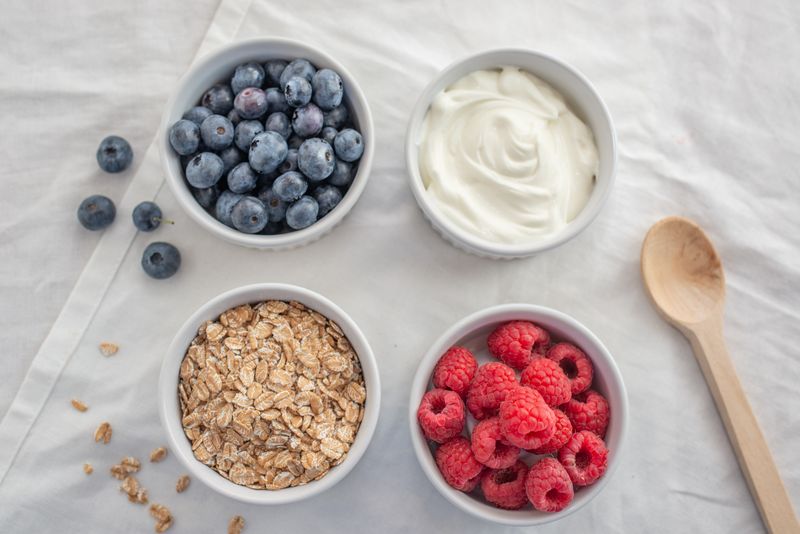
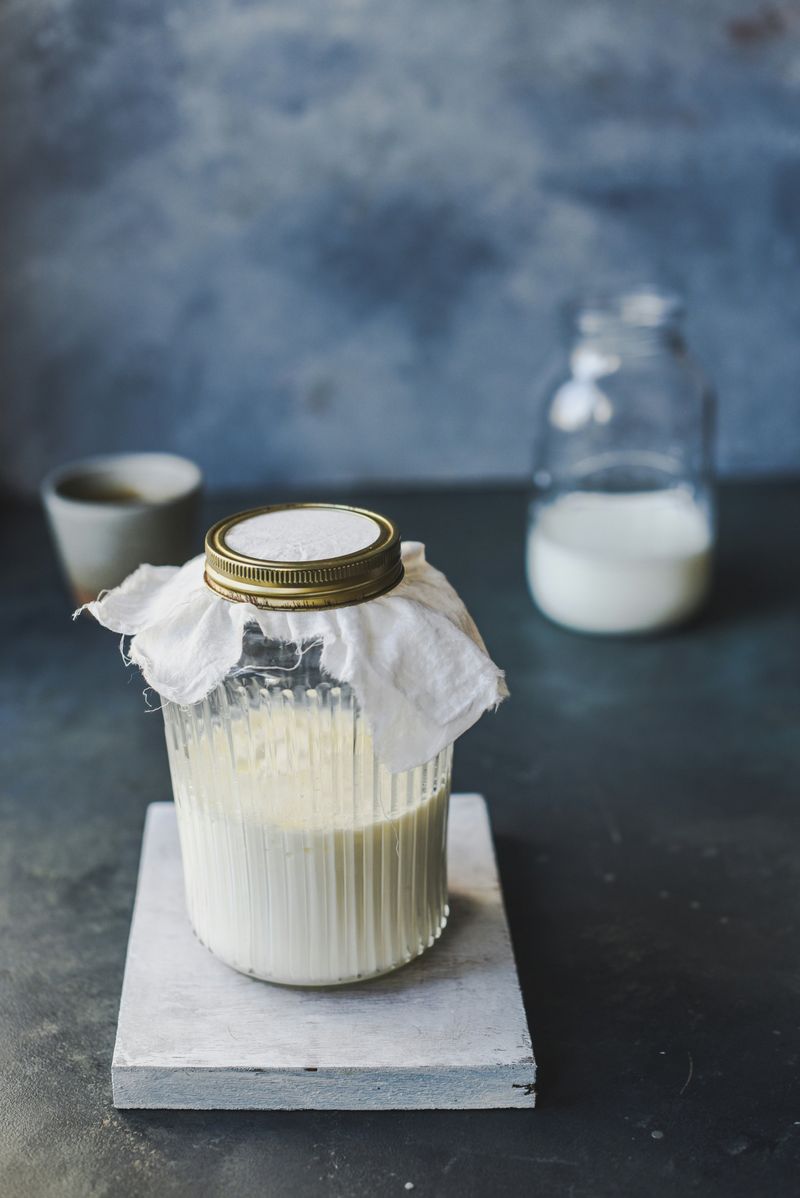

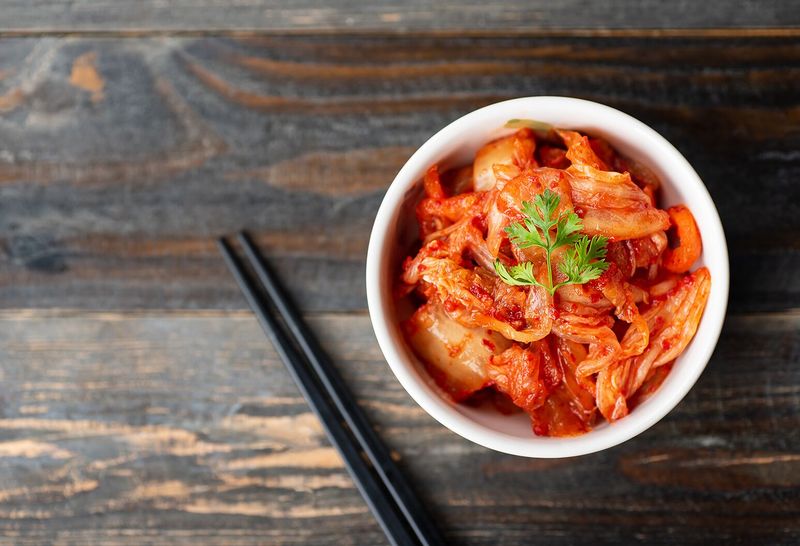

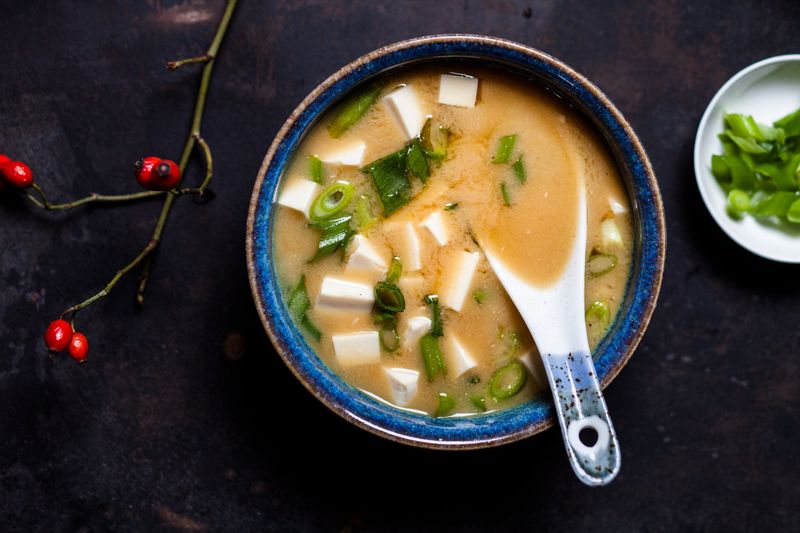
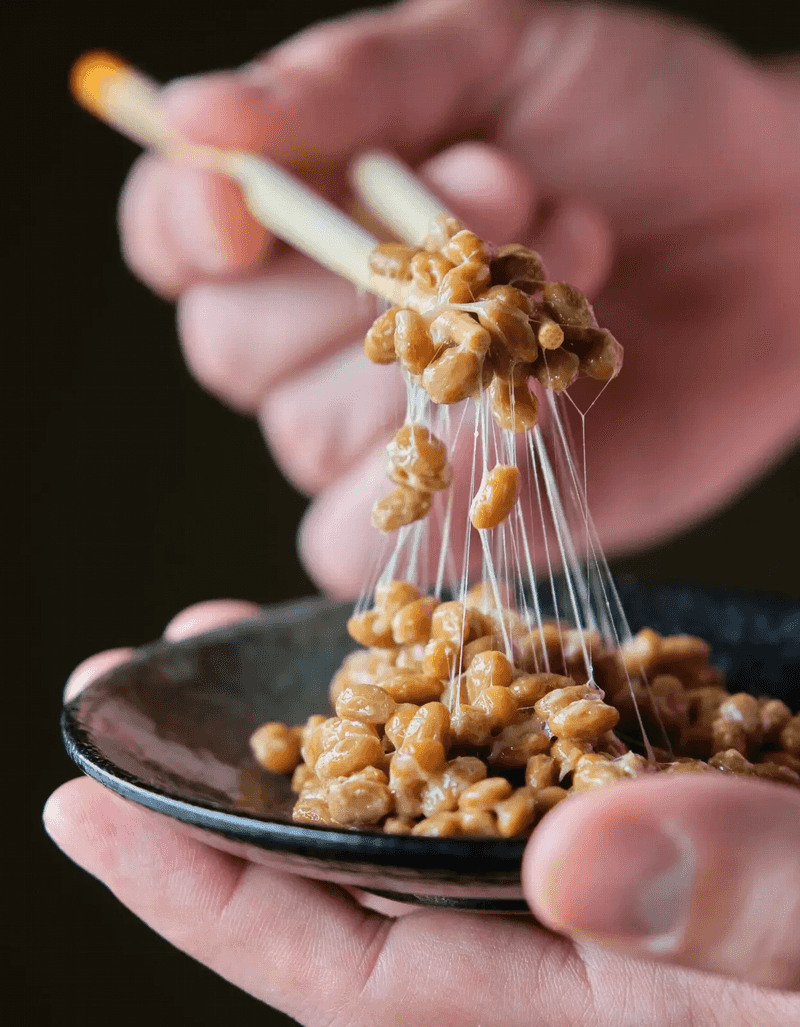
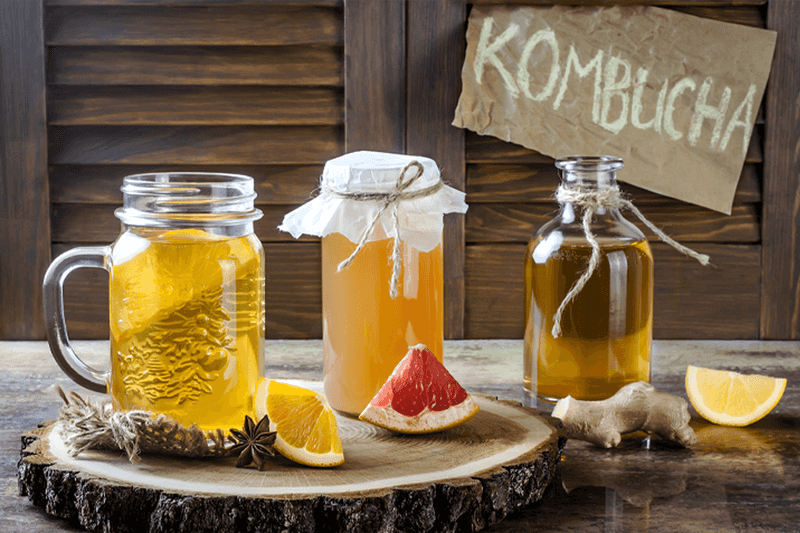
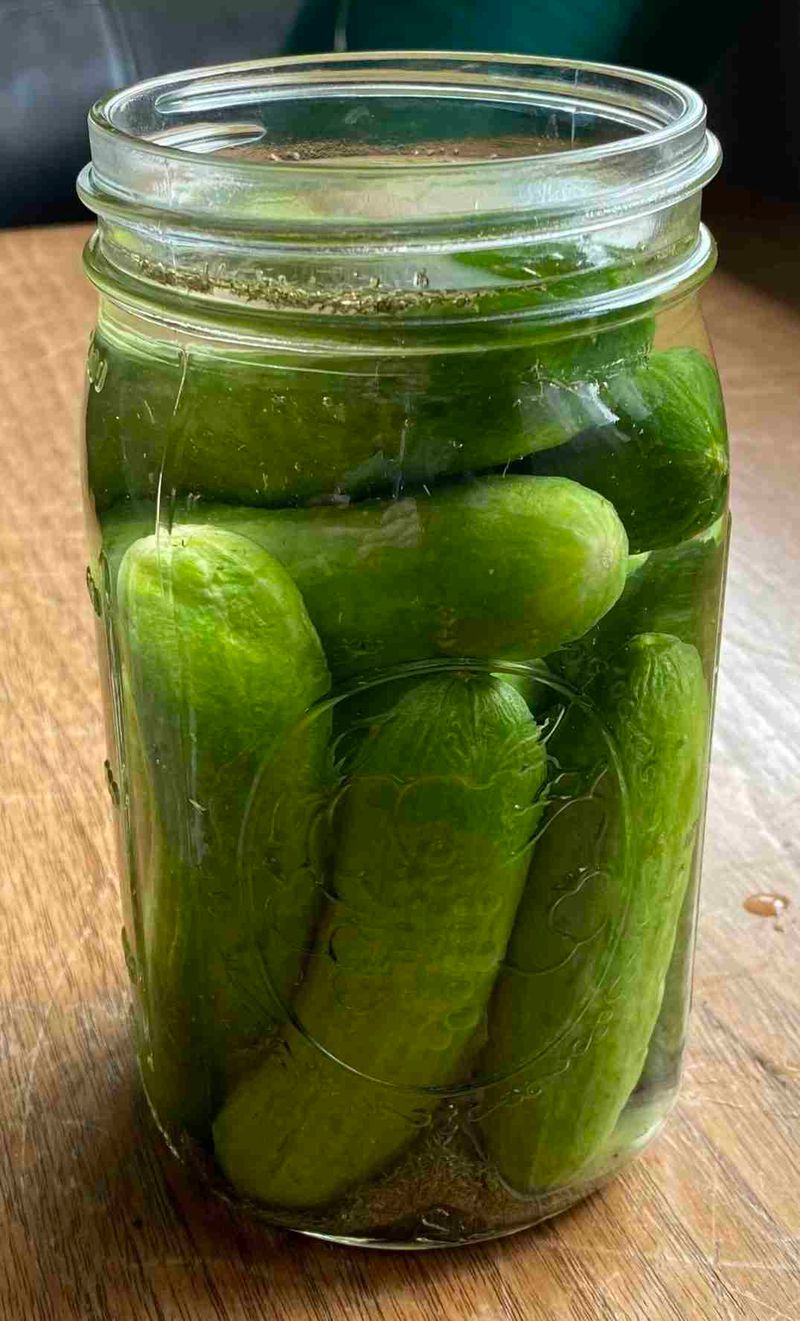
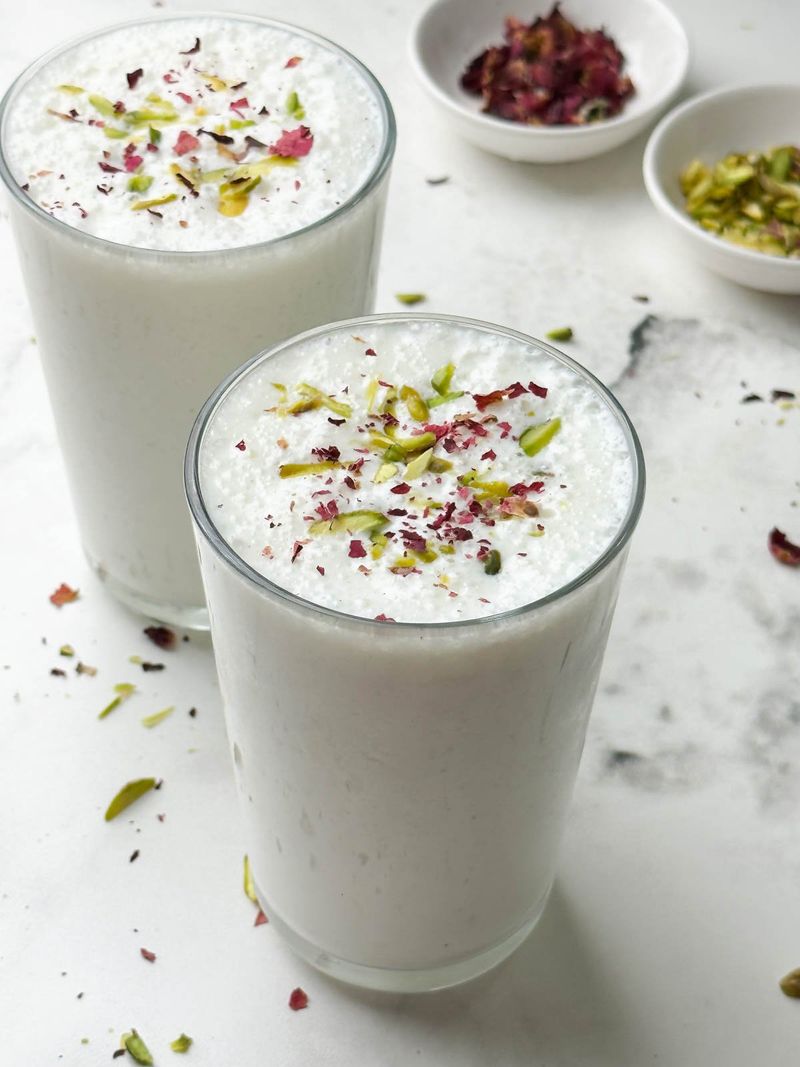


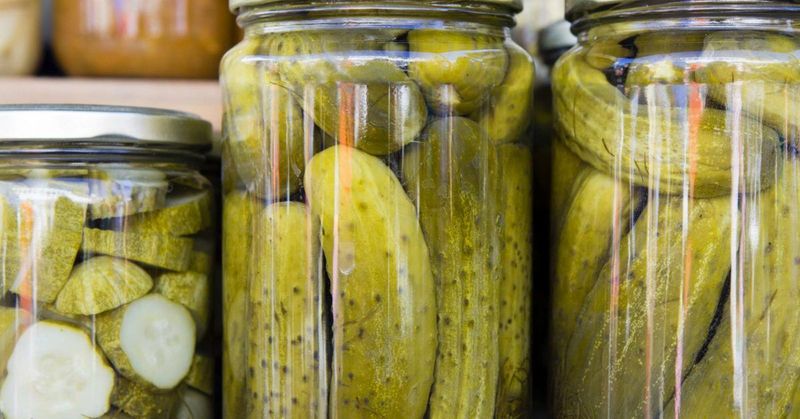
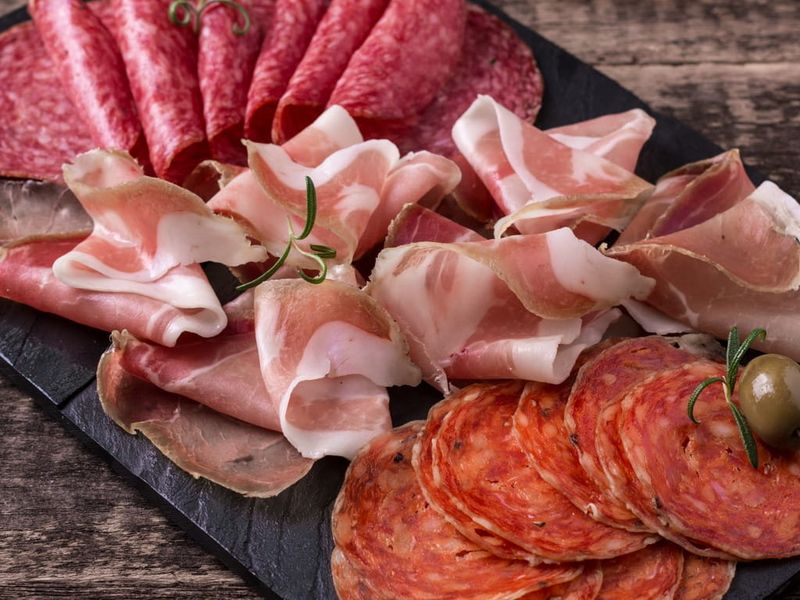

Leave a comment